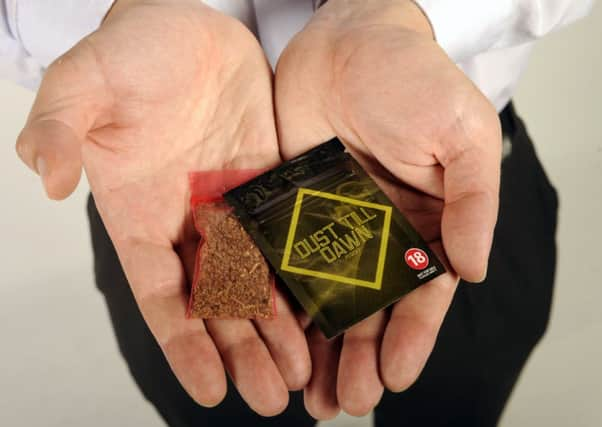Legal high deaths increase 400%


Experts fear they are “threatening to overwhelm our attempts at tackling drugs misuse”. Professor Neil McKeganey, director of the Centre for Drug Misuse Research, said there are now so many available it is like a “sweet shop” for users.
The mylegalhigh.org survey is an admission that experts have a poor grasp of the use and views of legal highs in the UK. And with 47 Scottish deaths in 2012, compared to 12 in 2010, concern is growing. In England, deaths rose 600 per cent between 2009 and 2012.
Advertisement
Hide AdAdvertisement
Hide AdProfessor McKeganey said: “The new psychoactive drugs are threatening to overwhelm our attempts at tackling drugs misuse in the UK. Enforcement agencies are hampered to the extent that many of these drugs remain outside the realm of the Misuse of Drugs Act.
“Similarly, our drug treatment system remains focused on meeting the needs of opiate addicts rather than those using these new drugs. Those working in the realm of drug prevention widely acknowledge that they simply do not know enough about these new drugs or their effects to mount targeted prevention campaigns.
“There is now an urgent need to gather up-to-date information on what drugs are being used, how widely, by who and with what effects. The survey is the first attempt to get that information from across the UK.”
Dr Christopher Russell, who designed the online survey, said: “The survey gives people in the UK their first opportunity to share their views and experiences of legal highs in a secure, confidential, anonymous, non-judgemental online survey.
“People can take the survey in their own time, wherever and whenever they like in the knowledge that their experience will contribute to fashioning an effective response to this new and dangerous form of drug use.”
Both the UK government, which reserves power over drugs classification, and the Scottish Government are committed to tackling legal highs. However, as soon as a drug is criminalised it is replaced by a new one.
David Liddell, director of the Scottish Drugs Forum, said: “Most are made in China. They’re continually changing the molecular structure to get around the bans and I’m sure they are two or three steps ahead of where we are.” Mr Liddell wants law enforcement agencies to target the producers, but this will require international co-operation.
Prof McKeganey believes government should look at banning a whole category of drugs. “Names become meaningless, they tell you nothing about what is in the drug and change on a daily basis. It’s like a sweet shop,” he said. “Legislating against individual substances does not work. One alternative the US is pursuing is legislation where you ban a class of drug.”
Advertisement
Hide AdAdvertisement
Hide AdCommunity safety minister Roseanna Cunningham said: “While banning new psychoactive substances is a matter for Westminster, we are determined to do everything in our power to restrict access to these drugs while educating people about the dangers of using them.”